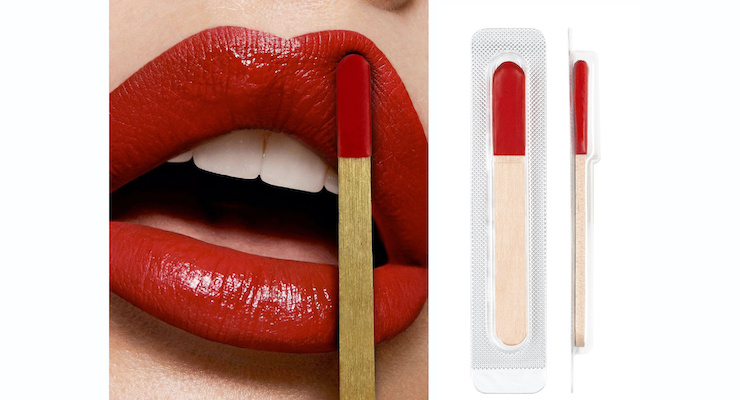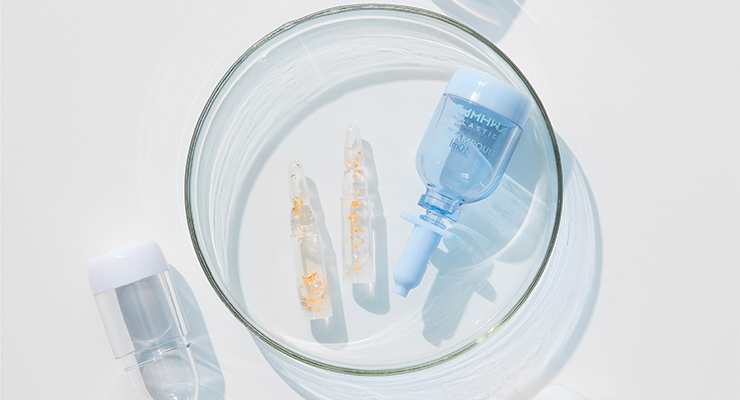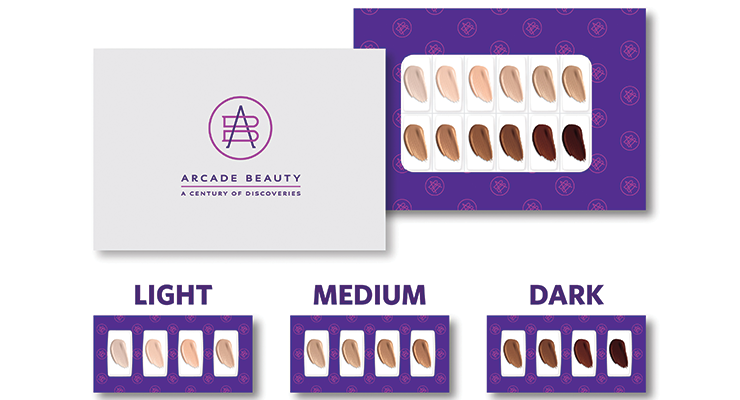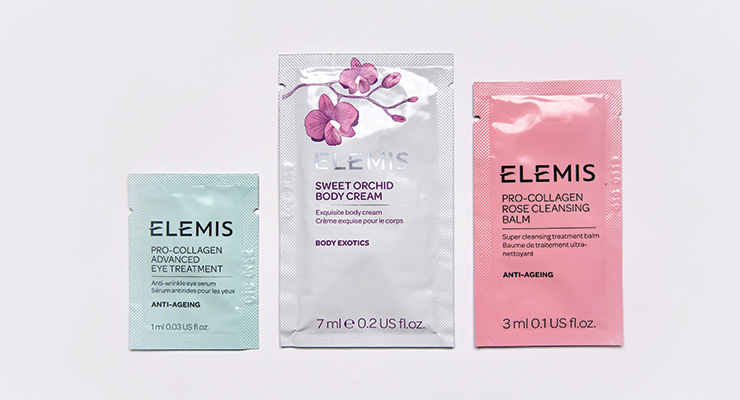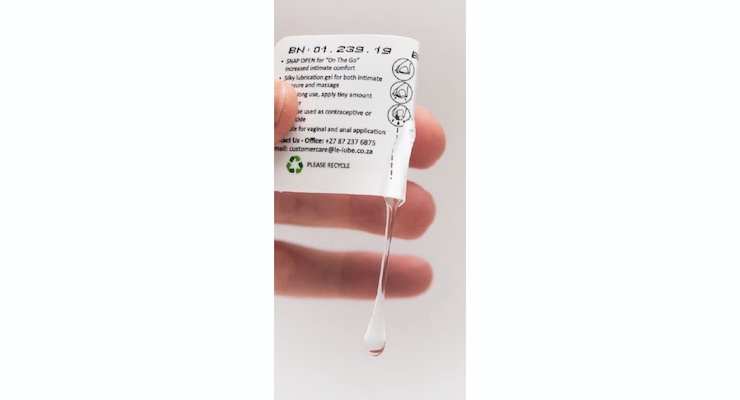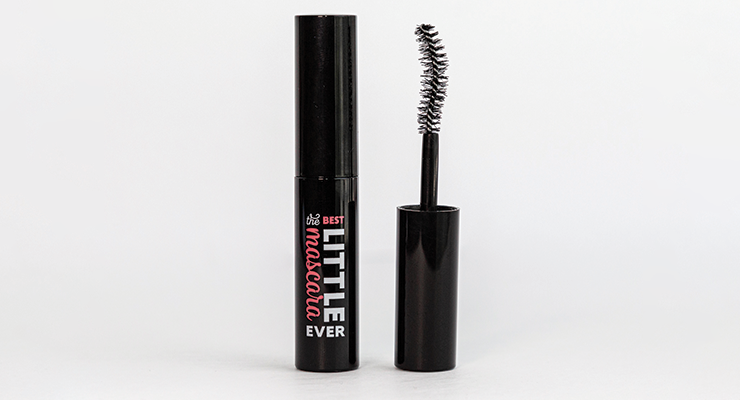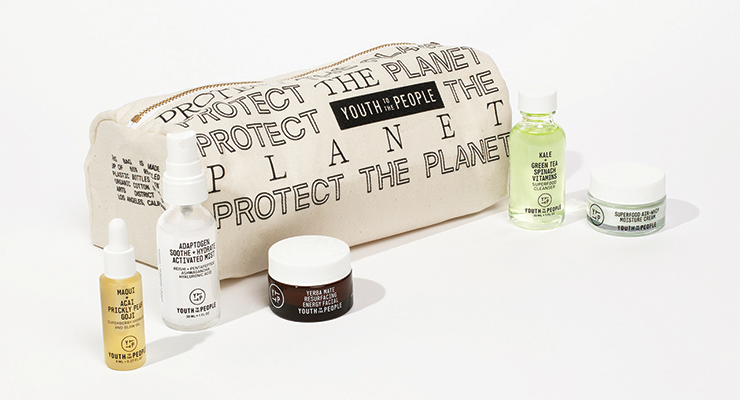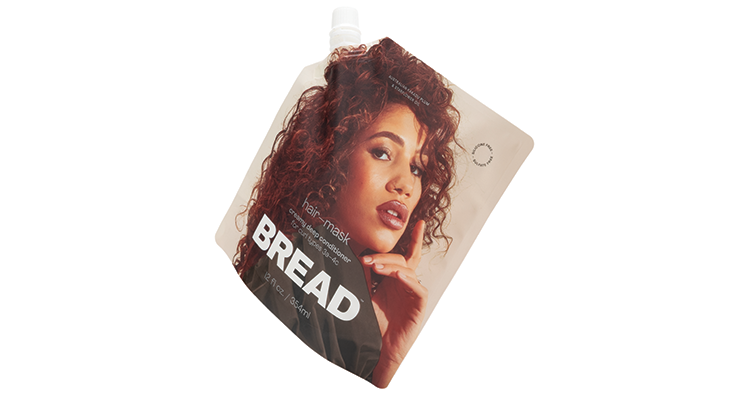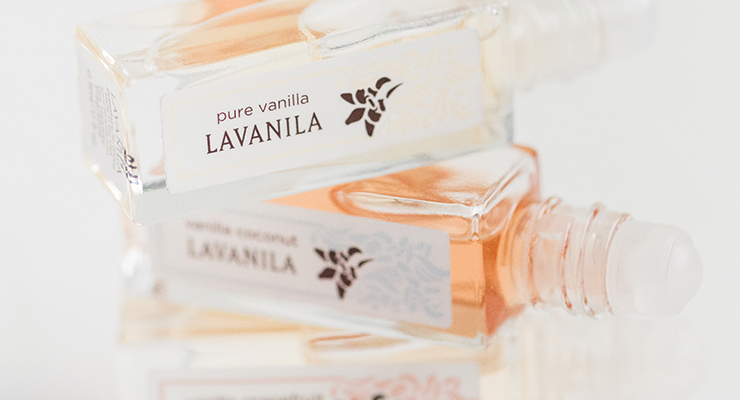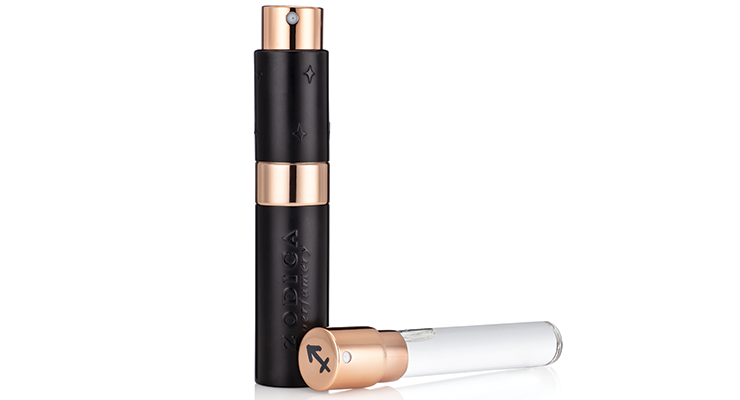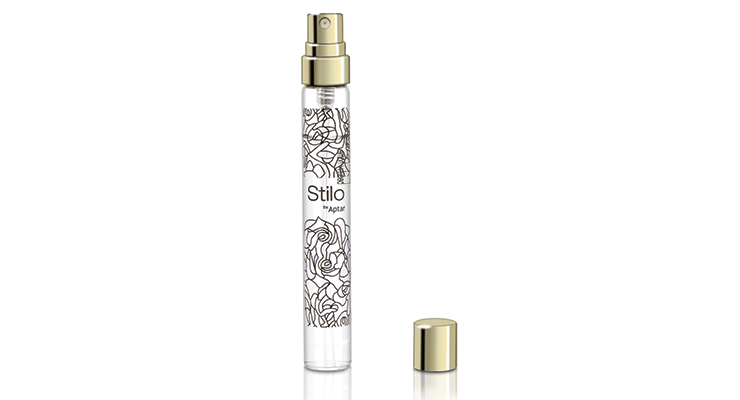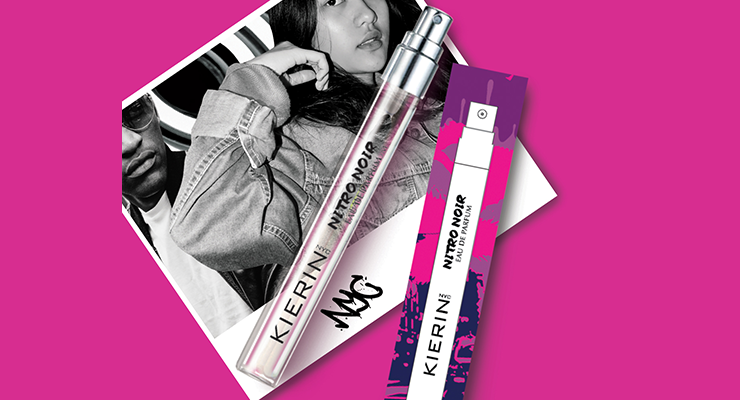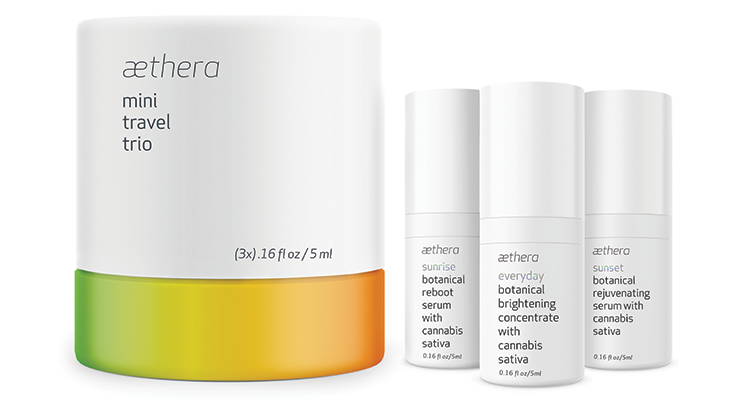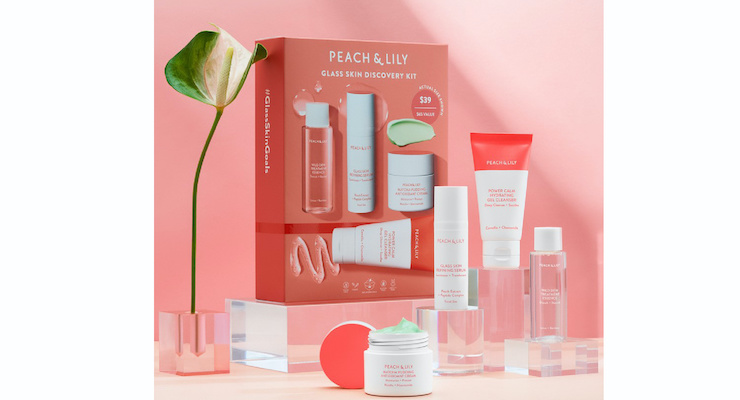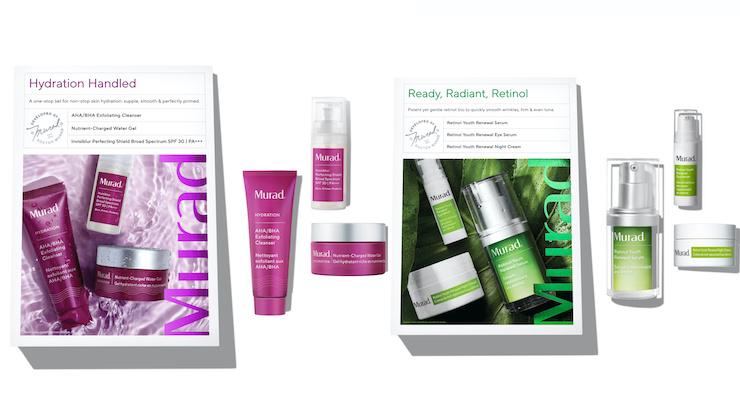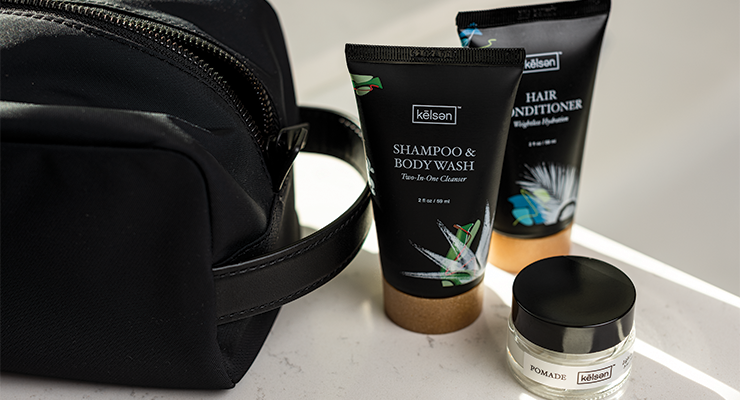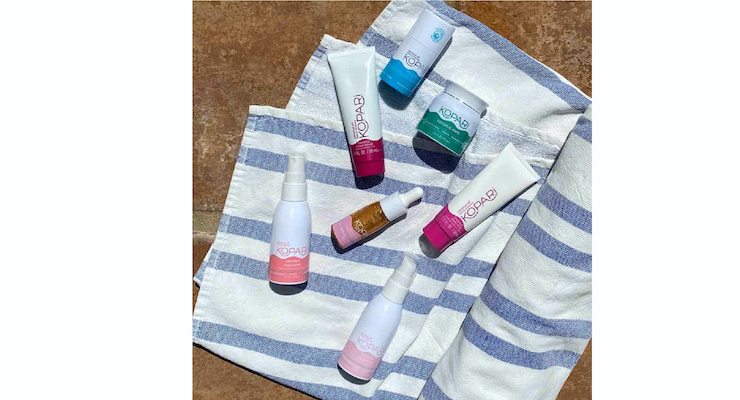Marie Redding, Senior Editor08.31.20
Shopping for beauty changed when the coronavirus pandemic began, and some say the changes may stick. A single-dose of lipstick in an airtight thermoform blister never seemed more useful, especially since traditional in-store testing seems to have come to an end due to germ-spreading concerns.
A survey by First Insight found that 80% of women respondents said they feel unsafe testing beauty products. Dated July 10, the study represents an increase from 78% reported on April 30.
“The days of sharing full-size bottles at the beauty counter to test products are over,” says Margery Woodin, vice president of marketing & sales, Identipak. Individually packaged doses, for everything from lipstick to fragrance, will soon be the norm, she predicts.
Doug Rofheart, senior sales executive, JP Packaging, stresses the need for retailers and beauty brands to minimize in-store touchpoints. “It is no longer acceptable for shoppers to touch the same pump or squeeze the same tube. We are all working to find a way forward as an industry,” he says. JP Packaging produces die-cut sachets and supplies unit-dose thermoformed blister packaging in custom shapes and sizes.
“Our habits and our way of consuming have fundamentally changed,” says Aude de Livonnière, CEO, Livcer. “Hygiene and staying safe are a concern for everyone now,” she says. Livcer specializes in sampling solutions, including thermo-form technology. The company has developed a new way to sample lipstick and any hot-pour cosmetic.
“The 'Livstik'—our ‘beauty match’—is a wooden or compressed paper stick with the formula wrapped around the end, and inserted in a blister pack,” explains Livonnière. “It is available as a single stick, or in strips of six pre-cut pieces. It is perfect for storing in drawers, on displays, or in demonstrators’ bags,” she says. Made from PE, paper, and wood, the 'Livstik' easily separates for recycling.
Qosmedix offers many products designed for easier and more hygienic makeup testing. “Currently, in-store testing is on hold at retailers across the U.S. due to Covid-19, but over the past few weeks we have seen an uptick in requests for disposable applicators. It's a promising sign of what’s to come,” says Sari Sternschein, the company’s vice president of marketing.
Sternschein also sees more requests for various types of sanitary tools for use in-store, such as paper face charts and stainless steel mixing palettes. “Shoppers have a heightened sensitivity to hygienic sampling now. We also expect to see more beauty brands using unit-dose packaging across all product categories,” she says.
Unit-Dose Packaging Is Now Essential
Unit-dose packs and ampoules were always popular types of sample packaging. Many skincare brands also use these as a full-size package, for a skincare regimen, for example. Suppliers say we're likely to see more beauty brands utilizing these packaging formats more often now.Vincent McCarthy, sales director, SamHwa, says sample packaging—especially unit-dose packaging—is now essential in 'selling beauty'. “Unit-dose packaging is the most hygienic way to package a beauty product, for retail sizes as well as samples,” he says, as 'clean beauty' takes on a new meaning. “Public areas are a risk. Unit-dose packaging is ideal for on-the-go use and whenever frequent sanitizing is not possible,” McCarthy adds.
More beauty brands are choosing ampoules as a sample package now, more often, McCarthy says. SamHwa offers a variety of ampoule styles. “Our single-use and multi-use ampoules are ideal for serums and oils. Our 1.5ml single-use “Spoid” ampoule has two options—a break-off tip or an elastomer-button release. It can dispense efficiently and hygienically, which makes it a great option for the post-Covid beauty world,” he says.
SamHwa’s multiple-use ampoule features an elastomer-button release mechanism for no-mess dispensing. “It preserves a formula, even after opening,” says McCarthy. “Our ampoules are highly customizable and can make a bold design statement. They can be customized using injection color, various types of coatings, and printing,” he says. They easily separate for recycling and can be made in PP, PETG, and PCR.
The team at Arcade Beauty says unit-dose sampling is key now, and will be post-Covid. “Although there has always been a demand for unit-dose sampling, this is something we must embrace across all platforms now–especially when it comes to shade matching, coverage, and texture,” says Diane Crecca, senior vice president, Fragrance Business Unit, Business Development and Corporate Relations, Arcade Beauty.
Arcade Beauty produces hygienically sealed labels that contain enough product for a customer to individually test foundation, concealer, blush, lip, and eye products—easily and safely. “These products cannot be shown on someone else’s skin. It must be on your skin to see how the color shows, and how it feels,” adds Crecca.
Getting More Samples to Consumers Is Key
When beauty retailers in the U.S. were closed during April and May due to Covid-19, e-commerce sales rose. The NPD Group found that in the second quarter of 2020, sales of U.S. prestige beauty products were $2.8 billion. This represented a -36% decline in sales over Q2 2019. “In contrast, online sales grew by +90% during these three months, representing about 61% of industry sales volume. The online channel’s market share soared to 70%,” the research firm states.Samplers not only take the place of testers in stores, but they also enable beauty brands to connect with consumers at home. This is especially important if retailers continue to see less foot traffic due to concerns over coronavirus.
Samples are a proven marketing tool, often influencing a purchasing decision. “Beauty samples are the third-largest driver of full-size product purchases, after past experience and recommendations from friends and family,” states Euromonitor International. The research company's beauty survey revealed that a free sample influenced a color cosmetic purchase for 14.39% of respondents in the U.S. last year.
When 'stay at home' orders kicked in across the U.S. earlier this year, online beauty shoppers began using virtual try-on tools more often—some for the first time.
“Since the crisis began, engagement with our Glamlab tool has increased nearly five times. More than 30 million makeup shades have been tested virtually,” stated Mary Dillon, CEO, Ulta Beauty, during an earnings results conference for the period ending May 2, 2020.
Similarly, Sephora has its Virtual Artist app, L’Oréal offers the Makeup Genius app, and Perfect Corp's new digital tools include a virtual 'arm' for swatching lipstick.
Will virtual try-on tools replace the need for beauty samples?
Experts are doubtful. “Single-dose samples for color cosmetics allow the customer to choose the texture, color, and payoff of the product while she is in the store—and make the right purchase the first time. Or, returns will become costly for brands,” explains Arcade Beauty’s Crecca.Livcer’s Livonnière emphasizes the need to feel a product and smell it when shopping for beauty. “Virtual options cannot replace traditional sampling as they do not serve the same purpose, but there is room for both,” she says.
Consumer magazines are seizing the opportunity to help get beauty samples into consumers' hands.
Allure is filling the pages of its November issue with beauty samples, while also partnering with the YouCam makeup app. Readers can virtually try on all the looks featured. The specially designed issue will hit newsstands on October 20.
Marie Claire UK has launched Beauty Drawer in partnership with Strivectin, calling it an “editor-approved beauty sampling service.” It's similar to a subscription box, but free in exchange for feedback. Members of the beauty sampling club will receive personalized skincare, hair, makeup, and fragrance samples. The initiative is led by Marie Claire UK’s e-commerce director, Emily Ferguson.
In line with these trends, some suppliers say the type of sample that is most in-demand is changing. “We see an increasing demand for ‘mailable’ samples, and a decreasing need for samples that will be distributed at brick-and-mortar stores,” says Identipak’s Woodin. A sample package has different design and formulation requirements if it will be mailed, and whether it will be mailed flat or affixed to a magazine’s pages.
“We also see more brands adding informational cards or leaflets to unit-dose samples,” adds Woodin. “These can be useful marketing tools, depending on how they are designed—and can take the place of an in-person beauty consultation.” Identipak offers various flexible sampling solutions, including many luxe options for all types of distribution strategies.
Single-Use Sachets Surge in Popularity
Sachets are common sampling packages, and they’re single-use and sanitary, making them a star during a pandemic.“Concerns around hygiene and the cleanliness of packaging have grown exponentially in recent months. We’ve seen a huge surge in sachet orders in reaction to Covid, from some of our longest-standing customers,” says Stephanie Maguire, marketing manager, Design Plus.
Sachets are cost-effective, resistant to water—and might soon be available in an antibacterial version. “Working with the industry’s best laminate suppliers to incorporate silver-based additives, we’re confident we will soon be able to offer an antibacterial sampling option, which we believe will be key in a post-Covid world,” says Maguire. “Our antibacterial substrate contains silver ions, which inhibit cell division and in short, kills bacteria. The silver-based additives will not lose efficacy and will not affect the overall lamination performance,” she explains.
Design Plus is the UK’s leading sachet manufacturer, filling them with liquids, powders and wipes for beauty brands. The company offers sachets for magazine sampling, carded types, and more. “We used a transofoil laminate with a gloss varnish on the sachets we produced for Elemis skincare,” says Maguire. The company also supplies sachets for Lee Stafford hair care, featuring a shiny band and logo made with a foil by Kurz.
JP Packaging offers new films with a 100% recycled paper outer layer, which is now an option on its die-cut sachets. “It’s a beautiful substrate for colorful inks and eye-popping graphics,” says Rofheart.
Snap Pack Co offers another type of sachet—a patented design called the Snap Pack, with an “Easy Snap” dispensing feature. “It has a semi-rigid bottom, and is unbreakable unless folded beyond 90 degrees,” explains the company’s owner, John Kriel.
The dispensing sachet accommodates any type of liquid, semi-liquid, or semi-solid product, and it has a smooth surface for printing and decorating. It can also be produced using recyclable materials. “We’re receiving a rise in requests from beauty brands due to our sachet’s hygienic aspect,” says Kriel. “No one wants to use a product that could’ve been contaminated by a previous user,” he adds.
Beauty Loves Minis
Beauty shoppers love 'minis'—and beauty brands seem to love supplying them to consumers.Mini packaging is cute, travel-friendly, and space-saving—in both bathrooms and purses. Often sold as a standalone product or part of a trial kit, minis represent a 7% share of the total U.S. prestige beauty market, according to The NPD Group. Sales of minis grew by 5% in 2019, rising to $1.3 billion.
Identipak supplies mini jars, mini tubes, mini fragrance sprayers—and more. “Many of our mini packages are often included in travel kits and beauty subscription boxes,” says Woodin.
Research shows that online shoppers recently preferred sticking to well-known brands, and may be reluctant to try something new right now. Budget-friendly minis often help entice beauty fans to try something new.
Minis may also be an economical choice for brands, according to Qosmedix’s Sternschein. “Unit-dose sampling can be an expensive endeavor considering how many foundation shades or skincare products a brand may carry, so offering an alternative like a mini sampling jar or mini fragrance sprayer that can be filled at-counter may be a more economical choice for some brands and retailers,” she explains.
The Best Little Mascara Ever
Indie beauty brand founder Christie Kerner liked minis so much that she created an entire company based on a mini package—the My Little Mascara Club.Kerner launched The Best Little Mascara Ever, in a mini bottle with an applicator brush. “I always loved using trial-size mascara,” she says. “A shorter wand length is easier for me to use and apply with precision. Plus, a big bottle always dries out before I get through it,” she says.
Since the FDA recommends replacing mascara within three months, Kerner says she wanted to create the perfect size mascara, and a subscription club. The brand’s 45-day plan is ideal for daily wearers, and there are also 60- or 90-day options. My Little Mascara is available in Length + Definition, and Volume + Curl is expected to launch soon.
Refillable Glass Minis, Plus More Sustainable Options
Several recent articles claim that minis are bad for the planet because they are often not recycled, but Youth to the People (YTTP) has a solution—glass bottles and jars, in its Protect the Planet Refillable Minis Kit.Joe Cloyes, the brand’s co-founder, says, “We use glass to help reduce the quantity of plastic waste created by the beauty industry. It won’t ever leach chemicals into the formula it holds, and can be recycled and reused many times.”
The minis are decorated using a silk screen process. “The ink is baked into the glass with a process that makes the deco more durable without using an adhesive or the excess paper required for a label,” Cloyes explains.
The minis come tucked inside a bag made from 65% recycled plastic bottles and 35% organic cotton. “We partnered with LA-based clothing manufacturer Up-cycle to create this sustainable material and unique bag,” Cloyes says. A protective insert made from green cell foam holds the products in place. “Green cell foam is made from corn starch, and it’s backyard-compostable, biodegradable, and water-soluble,” says Cloyes. “It’s a packaging innovation, and an excellent sustainable alternative to Styrofoam,” he says.
The team at Arcade Beauty also works with brands to offer options that include using FSC-certified paper for its paper-based products, and a foil-free packette for brands that want to eliminate the use of aluminum. “We focus on helping brands by engineering a sustainable solution that will meet their Corporate Social Responsibility strategy,” says Matthew Crider, senior vice president for Global R&D, Lab and Engineering Services, Arcade Beauty.
Identipak also offers a range of “green” options. “There is a critical demand from brands looking to achieve a greener footprint with their sample packaging, and it is possible to achieve,” says Woodin.
Mini Pouches—for Bread Beauty Supply & Madison Reed
There are mini tubes, mini bottles, and mini jars—but flexible pouches are an often-overlooked packaging solution that some beauty brands are starting to embrace. Bread Beauty Supply is a new brand that chose pouches over traditional bottles for its hair care line, which is for naturally curly and textured hair.Bread Beauty Supply uses a 12-oz pouch with a resealable spout for its shampoo and conditioner, and a matching 3.3-oz pouch in its “Snac-Pack” trial kit, which comes with a clear mini plastic purse. “I wanted our mini packaging to reflect their full-size counterparts,” says Maeva Heim, the brand’s founder. She first spotted similar pouches for skincare and food. “I was surprised more brands weren’t taking advantage of this packaging material, since it requires less plastic to make and reduces its shipping weight,” she says.
A model’s face adorns the pouches, which are decorated with a rotogravure printing process using 7-10 color cylinders. “Almost every designer I worked with tried to steer me away from using a face on the pack. I’m glad that I stuck with my instinct, as it gives us a standout look on-shelf and across digital mediums,” she explains. Heim was one of the first-ever Australian participants in Sephora’s Accelerate program, which she was a part of last year. Bread Beauty Supply is a clean, vegan, cruelty-free brand scheduled to launch at select Sephora stores on August 28.
Madison Reed just launched a new at-home hair color kit for men, Madison Reed MR—and the products are in mini pouches. Another brand, Beast, uses pouches for its shampoo and conditioner refills. The brand’s refillable aluminum “Beast Bottle” comes in two sizes, including a mini.
Fragrance Minis & Sampler Sets
Mini packaging, including both vials and rollerballs, are popular for fragrances.Lavanila offers a set of three “clutch-sized” rollerball minis, which are 5ml. The fragrances are “for discreet doses of Pure Vanilla, Vanilla Coconut, and Vanilla Grapefruit on-the-go,” the brand says.
Zodica Perfumery, an Indie brand that sells celestial-inspired fragrances paired with astrology signs, sells a Mini Discovery Set with 12 spray vials, 1.5ml each, so first-time buyers can try every sign of the Zodiac. The brand’s Travel Set includes a luxe refillable case designed to hold 8ml vial refills.
Aptar is a supplier that offers fragrance brands several types of mini packaging options, in different sizes—and one style is refillable. “Replica Stilo is our slim, elegant deluxe fragrance spray. It features our Screw On actuator, which makes it refillable, or our Seal Tight actuator,” says Jaimee Given, market development manager, NA Beauty, Aptar Beauty + Home. Replica Stilo comes in 5-, 7.5- or 10ml sizes.
Aptar also offers Easy Spray, a fragrance sampler with a metal-free pathway that is Eco-Cert certified. It’s available in 1.5- or 2ml sizes. “Our patented design allows the fragrance sampler to be attached to a card to avoid accidental leaking in transit when used with our Easy Clip,” says Given.
What Lies Ahead?
Commenting on the demand for makeup in general, since its use has changed since we are all wearing masks, Livcer’s Livonnière predicts, “It seems that there will be two worlds—outside, where women don’t wear a lot of makeup because of the masks. And the inside world, in video—where they will be heavily made-up. It will be a bit like in countries where women are veiled.”We will no doubt see more sampling innovations. Beauty brands and suppliers will also continue finding new ways to use digital technologies.
“The digital world is opening up new distribution opportunities for brands and retailers—allowing for a direct connection with consumers,” says Allie Sorensen, vice president, sales and marketing, Arcade Beauty. “She adds, “Our digital sampling business, Abeo, is a platform that delivers an at-home product discovery and brand experience.”
Sample packaging will no doubt be more widely used, suppliers say. “We’ve started to see an uptick in inquiries about turning our samples into primary packages,” says JP Packaging’s Rofheart. “Minimizing touches and maintaining a clean personal space has never been more important, especially as we all work toward finding a way forward.”
Design Plus’s Maguire adds, “The shopping and sampling experiences have changed, so many beauty brands are reconsidering their sampling programs.”
She advises, “Going forward, brands will need to adapt sample packaging to minimize risk—but even more important, just to put consumers’ minds at ease.”
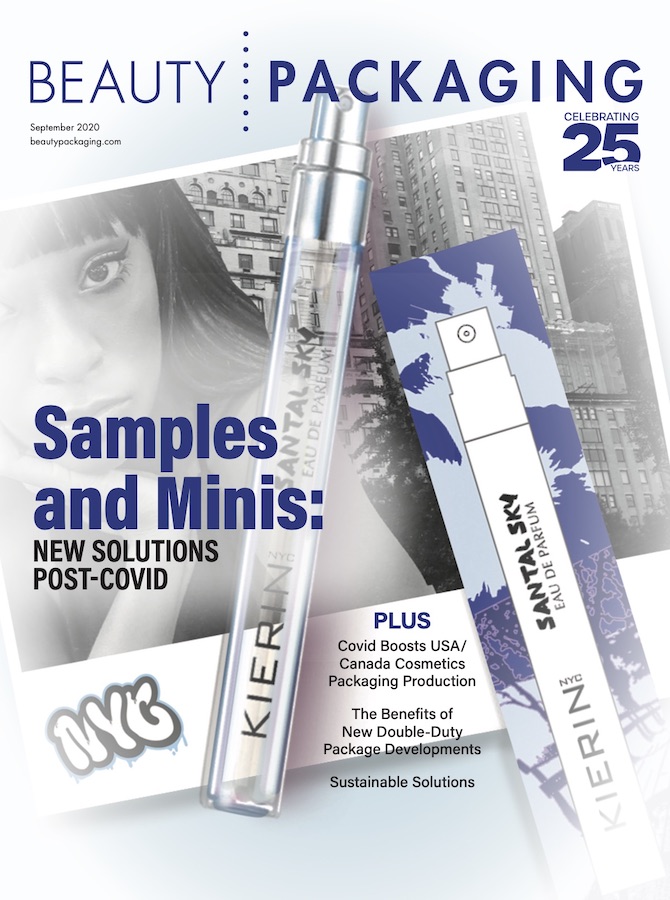
The cover of our September issue
ON OUR COVER
Kierin NYC's New Mini Sprays Boost Business
Mona Maine de Biran, founder of Kierin NYC, says sample sets and minis are crucial for DTC fragrances.Kierin NYC, a line of four niche fragrances based on New York City “stories,” launched a new 10ml mini travel spray—even as travel plans were canceled across the globe.
“We anticipated the need for a smaller size at a lower price point and launched as the pandemic hit. The mini is a more affordable treat,” says Mona Maine de Biran, founder and president of Kierin NYC. “Fragrance is joyful—it’s good for your immune system,” she adds. “There’s still a demand, but we may not need a large bottle right now.”
Priced at $30, the mini (on our cover, and below) is made in the U.S. “Our juice is American-born, as are our boxes, mini spray, and brand labels,” says Maine de Biran.
The Discovery Set contains all four of the brand’s fragrances in 2ml spray vials—and 37% of its sales converts to a purchase of a full-size fragrance within two months. Buyers are credited its cost toward a full-size fragrance.
Kierin NYC was well-equipped to adjust when beauty retail moved online due to Covid, with email marketing and social media strategies already in place. “Covid is awful and I wish it had never happened—but it has been a boon for our business,” says Maine de Biran. “We can’t wear lipstick anymore, but we can smell good—and even spritz our masks.”
ON SHELF: A Look at Mini Kits for Travel & Trial
Here’s a look at a few mini trial sets and travel kits.
Mini kits are popular for skincare, hair care, and all types of products—enticing consumers to use several together as a regimen.Aethera Beauty’s skincare range is formulated with sustainable Caribbean actives, including hibiscus, acerola cherry, and guava fruit extract. The Mini Travel Trio includes Sunrise Botanical Reboot Serum, Everyday Botanical Brightening Concentrate, and Sunset Botanical Rejuvenating Serum—all in mini 5ml bottles, packaged in a colorful round carton.
Murad’s mini skincare kits address different skincare concerns. The Hydration Handled kit features bright pink packaging. It includes AHA/BHA Exfoliating Cleanser in a 1-oz tube, Nutrient-Charged Water Gel in a mini jar, and Invisiblur Perfecting Shield Broad Spectrum SPF 30 in a mini bottle with a pump. Murad’s other kits include Start Bright, with orange minis—and Ready, Radiant, Retinol, which features bright green packaging.
Kelsen, a new hair and body care brand for men, uses recyclable tubes made from 85% plant-based sugarcane paired with compostable wood composite caps. Kel-sen’s Travel Kit includes a 2-oz tube of 2-in-1 shampoo and body wash; a 2-oz tube of hair conditioner; and a .5-oz recyclable glass jar of pomade, with a plastic lid.
Peach & Lily’s Glass Skin Discovery Kit promotes “glass” skin—poreless, luminous, and translucent. The brand’s mini kit includes Power Calm Hydrating Gel Cleanser, Wild Dew Treatment Essence, Glass Skin Refining Serum, and Matcha Pudding Antioxidant Cream.
Kopari’s “clean” products are based on sustainably sourced coconut oil. The Mini Pack includes seven of the brand’s best-sellers, which look just like the larger sizes. The set includes six minis, ranging from deodorant to body wash, with a regular size lip gloss.

